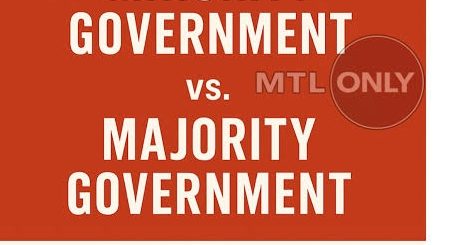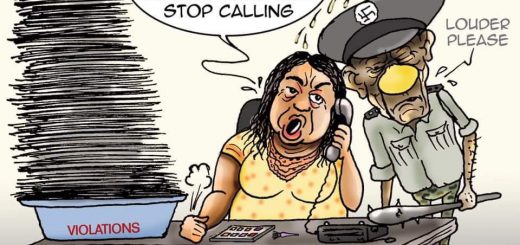Procurement related corruption in Uganda can be ended by imposing a duty to obtain the best possible price.

Procurement related corruption is the cause of inflated project pices in Uganda. The bidder has to navigate a web of bribes and kickbacks to get the contract award and to be paid during the contract execution. In government agencies if you are wetting the fingers of public servants your invoices and certificates will be processed at warp speed. However, if you are what is referred to as a dry contactor or simply a contractor who doesn’t not throw bribes around, issues regarding your payments and invoices will drag on and on. In other instances specifications used in the procurement process are intentionally tailored to fit only one contractor. In the process competent firms that might have offered better terms are eliminated before they can even bid for the contract.
Obviously there is general solution for all these levels of corruption and there is no magic solution that is going to solve any of the levels of procurement related corruption identified above. The powers that be at the PPDA try to sell us the idea that electronic procurement is the magic wand that will reduce procurement related corruption but they are not fooling anyone. The best electronic procurement can do is end the practice of intentionally altering or losing some bids. It will not end kickbacks or leaking of information to bidders or holding invoices hostage till bribes are paid. Electronic procurement will not draft the specifications, corrupt people will still do so and they will still tailor them to the provider of their choice. The electronic system will not evaluate and award the contract, corrupt Public servants will still do this. The most likely scenario is that someone at PPDA conceived the electronic procurement project so as to earn some money from the procurement of the system and its maintenance related contracts.
There is one solution that might save the state some money and reduce the cost of projects in Uganda. The solution is to impose an overriding duty on those engaged in the procurement process to obtain the best possible price. This duty exists under the current law but the procurement laws and regulations in Uganda emphasis processes over price. So as long as you follow the Procurement processes in Uganda, it is very hard for a person to fault you on the prices paid for the goods and services unless it is clearly inflated. Even in the circumstances where the price is clearly unreasonable or arbitrary, it will take a good investigator and prosecutor to make a case against you. It is widely thought amongst many people including lawyers that as long as the Procurement process is followed, issues of price do not arise except where the lowest bidder is denied the contract award without justification.
The problem with insisting that the best evaluated bidder in terms of technical expertise and price be awarded the contract without ensuring that you obtain the best possible price is that in many cases the lowest bid is not necessarily the best possible price. Let me explain, a might have a retail price of USD 10,000 and be available from most suppliers at USD 11,000 to 12,000 but during procurement, the best bidder bids USD 25,000. In Uganda, the procurement process allows the procuring entity to accept the bid of USD 25,000 without taking steps to obtain the best possible price. You will hear excuses such as bid prices are different from market prices and thus it is okay for the state to pay a higher price for goods that private persons. Why really is it ok for the state to pay a higher price than a private individual yet the state actually usually buys in bulk and should be taking advantage of this to buy at lower prices. A customer who buys in bulk grants more value to the business because though the business owner might earn less profit per item sold, he or she moves high volume of stock and makes profit in a smaller window of time.
Imposing a duty to ensure the best possible price is obtained during the procurement process regardless of the bids received will force the procuring entity to assess the market price at which the goods can ordinarily be obtained and take measures to ensure that the best evaluated bidder or the next best one meets this price. In our example above, a deligent procuring entity would negotiate the price of the car to a price between USD 10,000 and USD 12,000. Just like that with available man power we have saved the state USD 13,000 by imposing a legal duty.
The duty to ensure the best possible price can be enfforced by requiring the procuring entity to carry out market research both online and by visiting various suppliers. Prices of goods are available on the websites of manufacturers, wholesalers and e-commerce websites. The internet is a good place to carry market research cheaply and it can be supplemented by a database of market prices compiled and periodically updated by the Inspectorate of Government. A requirement should be imposed that any contract where the price exceeds the average price provided by the Inspectorate of Government, must be first approved by it. Furthermore, a procuring entity must produce a market assessment report supported by evidence showing the best possible price and this report must be signed and owned by the accounting Officer who should be penalized for any negligence that leads to an inflated price. Those that breach these requirements should be investigated and charged with causing financial loss without exception.
Everyone should know that, there is nothing in the PPDA Act that waives the duty to obtain the best terms during the procurement in both private and public bodies. Following the process doesn’t not relieve the procuring entity of the duty to obtain the best possible price.
Read More
- Ideal Amendments that should be included in the Magistrates Courts Amendment Bill 2026 of Uganda
- President Yoweri Kaguta Tibihaburwa Museveni is a minority President voted by only 7,946,772 (36.7%) out of 21,649,608 eligible Ugandan voters in the 2026 Presidential Elections
- Four years of IGG Beti Kamya drowned the Inspectorate of Government (IG) deeper into oblivion and irrelevancy but it Can be redeemed
- The Proposal to Make Magistrates Grade Ones Chief Magistrates is an efficient use of resources that will improve service delivery in Uganda
- If Magistrates Courts in Uganda are less competent and more prone to corruption does it mean that the poor deserve inferior justice to the rich.


